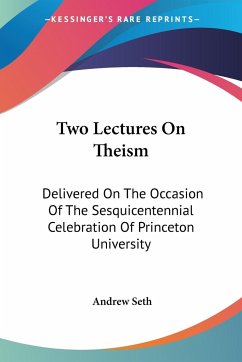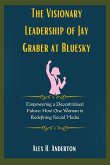The umma is in turmoil. The confusion resulted from a "turn" from the Book of revelation to books of traditions. Persons - transmitters of traditions - became "authorities." The "turn" is tantamount to a reorientation from revelation to tradition, from a revelation-centric to a tradition-centric paradigm. But the tradition-centric paradigm is tainted by a range of anomalies. These encompass the repression of reason, the treatment of tradition as revelation and the endorsement of the teaching of abrogation. The turn was propelled by the requirement for a militant rendition of revelation to furnish a justification for waging wars of aggression for the purpose of territorial expansion, under the banner of Islam. Hawkish rulers required a way of by-passing the prohibition of aggression in the Book of Allah. Hawkish ulama undertook to fulfil the task. Militant ulama articulated a justification of wars of aggression by asserting that the verses of reconciliation were "abrogated" by the verses of the sword. This was a travesty. Embracing this teaching requires ceasing to believe in a hundred and twenty verses. To expect a person to cease believing in any verses of the Book of Allah is tantamount to expecting that person to abandon Islam by committing kufr. The alleged abrogation of the verses of reconciliation transformed the religion of reconciliation into a manifesto of war. Hawkish ulama politicized exegesis as well as jurisprudence, and engaged them to further the political aspirations of the rulers. The weaponization of research reduced it to the rank of propaganda. The turn from revelation to tradition was assisted by the repression of reason. The repression of reason enabled recourse to flawed perceptions, the treatment of tradition as "revelation" and the teaching of abrogation. The growing emphasis tradition at the expense of revelation and the repression of reason are reflected in the works of the imams. Abu Hanifa emphasized reason. Imam al-Malik took into account the practices of the people of Madina. Imam al-Shafi'i subordinated reason to tradition and treated tradition as legislation. Ibn Hanbal rejected reason, prohibiting its use even for the purpose of understanding tradition. In this process the emphasis on tradition rose and reliance on reason waned. At the beginning, the emphasis on revelation and reason was robust, while the emphasis on tradition was scant. With the rising emphasis on tradition, there was a de-emphasis on revelation. Tradition became "equal" to revelation. Subsequently it rose to the rank of a "judge" of revelation. Traditionists then vested tradition with the authority to "abrogate" and even "replace" parts of revelation. This transpired with the punishments for apostasy and adultery. Both were derived from tradition. Not everyone agreed with treating tradition as "revelation." Differences emerged between the ahl al-ra'y or the Mutazilites and the ahl al-hadith. They were predated by the clashes between the ahl al-kalam and the ahl al-hadith. Tensions emerged at the academic as all as the political plane, at times with tragic results, for example the mass killing of the philosophers by Musa al-Hadi in 786. The articulation of the teaching of jihad al-talab, the propagation of Islam through force assisted in transforming Islam into a manifesto of war. Renewal will require a return to revelation, assisted by the rehabilitation and re-engagement of reason. This does not mean that reason is to be placed above" revelation. Reason is an instrument for the comprehension and application of the teaching of revelation. Appropriate response requires a paradigm shift, from the tradition-centric paradigm to the revelation-centric paradigm. This requires the de-sacralization of tradition, affirming the pre-eminence of revelation, and a return to reason in the exegesis and jurisprudence of revelation.
Hinweis: Dieser Artikel kann nur an eine deutsche Lieferadresse ausgeliefert werden.
Hinweis: Dieser Artikel kann nur an eine deutsche Lieferadresse ausgeliefert werden.








